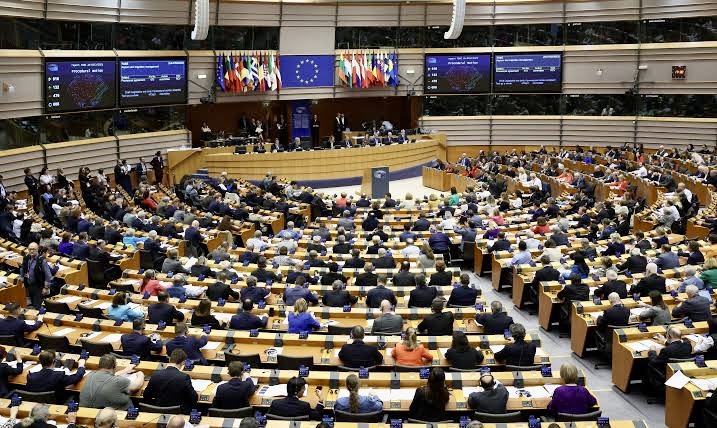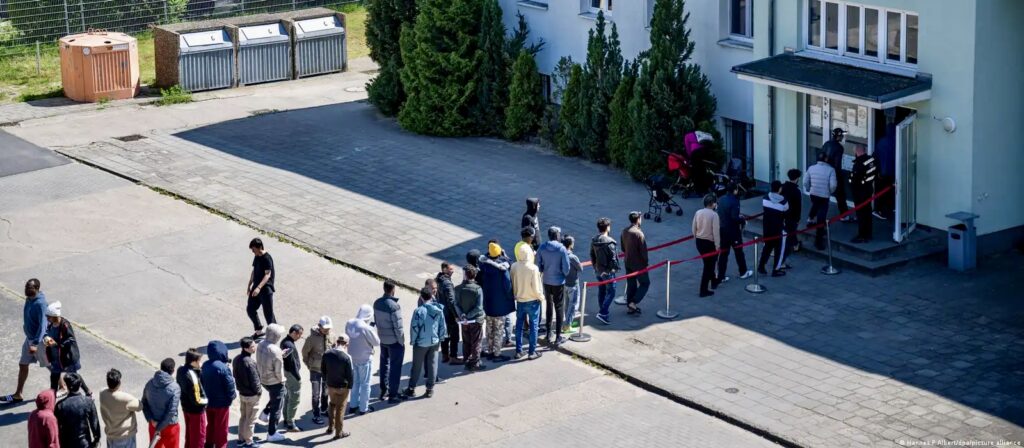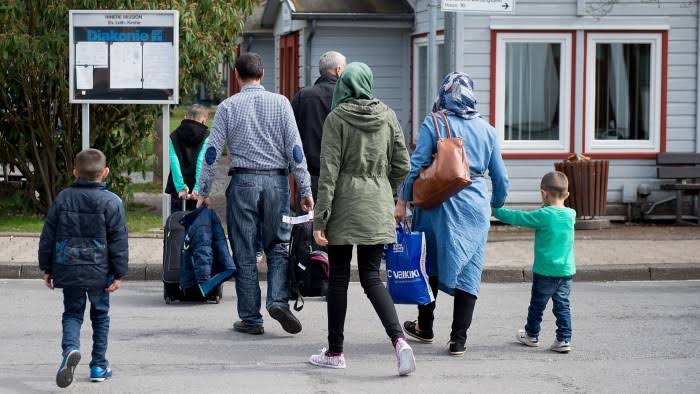
Faith Nyasuguta
European Union lawmakers embraced a sweeping overhaul of the bloc’s migration laws on Wednesday, aiming to resolve long-standing divisions over the management of unauthorized entries and diminish the far-right’s grip on a key campaign issue ahead of June elections.
In a series of 10 votes, members of the European Parliament endorsed the regulations and policies comprising the Pact on Migration and Asylum. These reforms tackle the contentious issues of migrant responsibility upon arrival and the obligation of EU nations to provide assistance. The proceedings faced a brief interruption from demonstrators in the public gallery, emphasising the gravity of the debate.
For the reforms to be implemented, all 27 EU member states must endorse the package, potentially through a vote in late April. European Parliament President Roberta Metsola, a key figure in shepherding the reform package, celebrated the milestone on social media, labeling it “History made.”
It has been more than 10 years in the making. But we kept our word. A balance between solidarity and responsibility. This is the European way,” she wrote.
She emphasized the delicate balance struck between solidarity and responsibility, characterizing it as “the European way.”
German Interior Minister Nancy Faeser hailed the outcome as a “major and very important success,” highlighting the years of negotiations that culminated in the comprehensive package. Faeser, whose country has grappled with significant refugee inflows, stressed the need for broader cooperation in addressing migration challenges across the EU.

The reform efforts were prompted by the 2015 refugee crisis, which saw an influx of 1.3 million individuals, primarily from conflict zones in Syria and Iraq, seeking refuge in Europe.
The EU’s asylum system faced severe strain, with reception centers overwhelmed in Greece and Italy, and internal borders erected by some member states to stem the flow.
However, the road to consensus has been fraught with disagreements, with even some of the lawmakers involved in drafting parts of the reform expressing reservations about the overall package. Dutch lawmaker Sophie i’nt Veld, who contributed to the assembly’s position on migrant reception conditions, expressed reluctance to celebrate, signaling lingering concerns among stakeholders.
Swedish parliamentarian Malin Bjork, who focused on refugee resettlement, echoed these sentiments, asserting that the pact fails to address critical issues and could undermine asylum rights. She criticized the reliance on plans already in place in certain EU countries to process migrants abroad, warning against the erosion of individual rights.
The reform package introduces several controversial measures, including the collection of facial images and fingerprints from children as young as six and the potential detention of individuals during screening. Additionally, fast-track deportation procedures could be utilized for those deemed ineligible to stay.
However, the reforms also include provisions for burden-sharing among EU nations, whereby countries can be obligated to assist their partners by hosting asylum seekers or covering the costs of their accommodation elsewhere. This aspect has drawn both praise and criticism from various quarters.
Migrant and human rights groups have voiced reservations about the reforms, arguing that they fail to provide adequate protection for asylum seekers and may increase the risk of human rights violations. While acknowledging some positive aspects, such as provisions for refugee resettlement, these organizations have called for greater safeguards to ensure the rights and dignity of migrants.

Amnesty International’s Eve Geddie characterized the reforms as “a failure to show global leadership,” expressing concerns about the potential for increased human rights abuses across Europe. She warned against policies that could lead to illegal pushbacks, arbitrary detention, and discriminatory treatment of migrants.
As mainstream political parties gear up for the upcoming elections, migration is expected to feature prominently in the campaigns. The reforms are seen as an attempt to address far-right narratives and win broader support among voters concerned about migration issues.
The efficacy of the reforms hinges on their implementation by member states and enforcement by the European Commission. Whether these measures can effectively manage migration while upholding human rights and fostering solidarity across the EU remains to be seen.
Moreover, there’s a looming question regarding the European Commission’s enforcement of the rules, given its history of selective enforcement to mitigate political crises.
RELATED:




